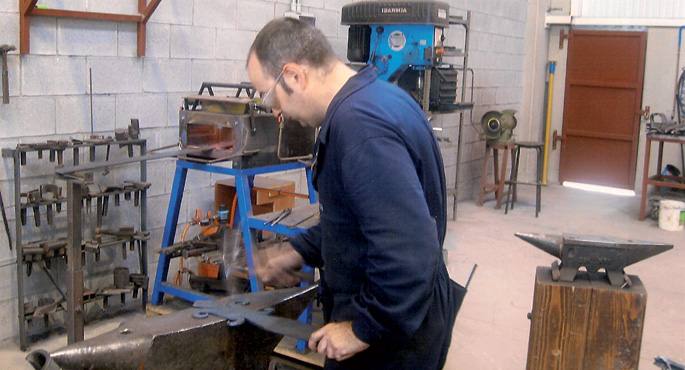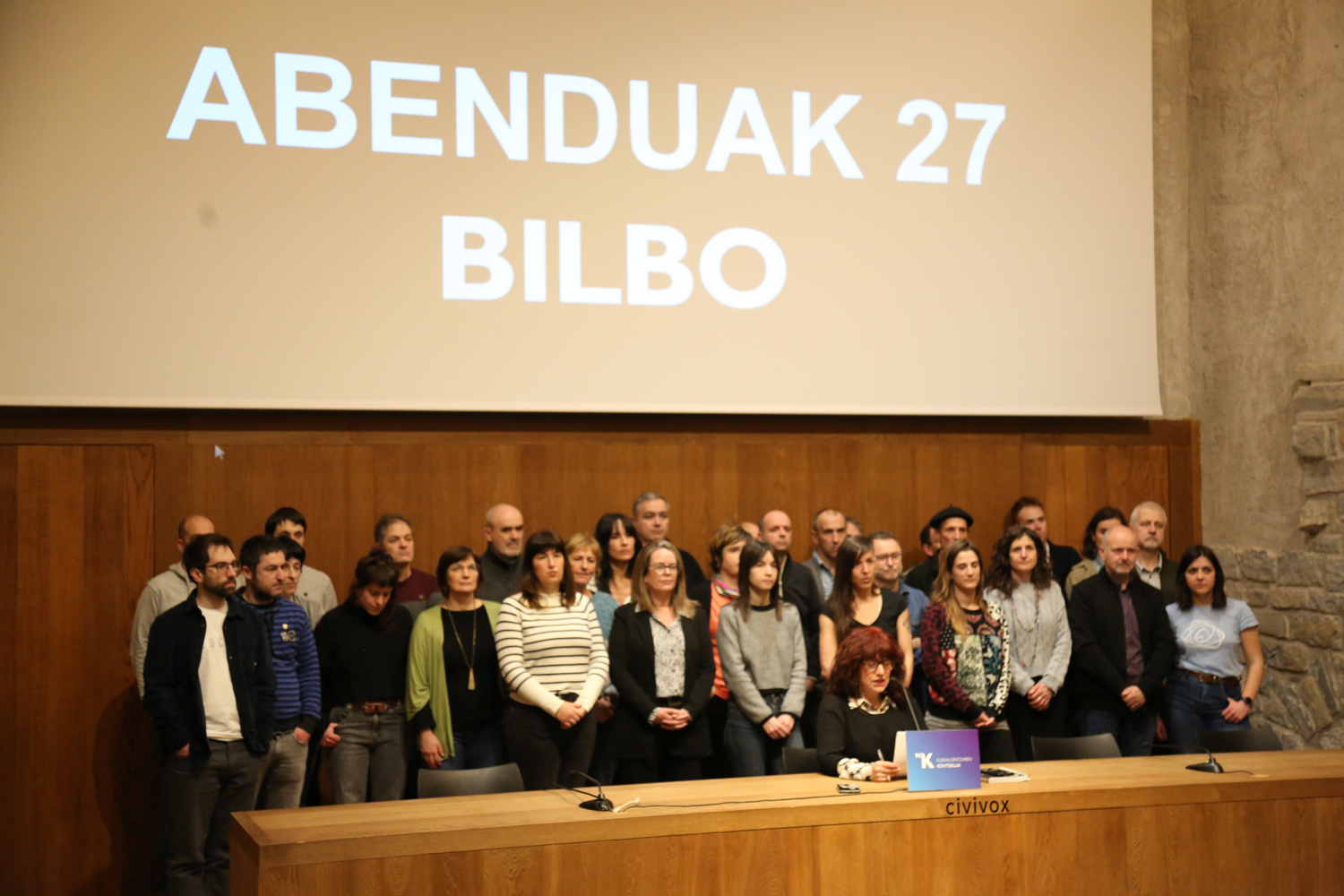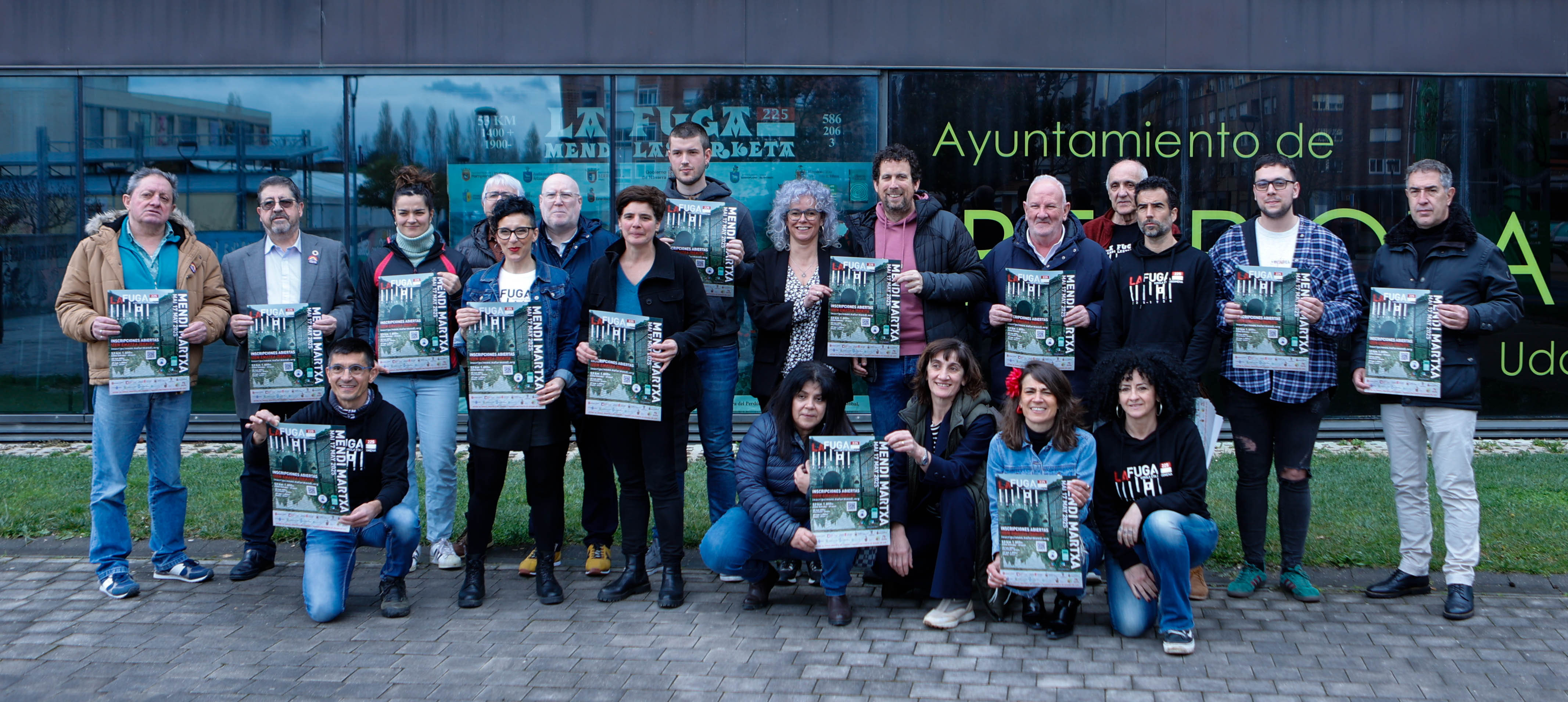At the command of the needs of the time
- Each era has its own professions, so there are many that have disappeared or are about to disappear due to demand and fashion; the crisis does not help either. We have found many of them among those related to traditional craftsmanship.

Pregunter, Sheriff, Butcher, Stewardess, Telegrapher, Noodle and Weaving Manufacturer, Perrador, Miner... These are some of the professions that have been in our country so far, but they are currently missing or barely present. After all, the professions of a country are closely linked to its society, since the human being responds to the needs of the moment, from which the professions emerge as solutions. The desire to feed led to the manufacture of hunting tools, or the need to dress to make clothes. Each epoch has its own needs and the professions are changing; some have disappeared and others have been created or strengthened.
The area also determines many professions. “On the coast, fishing has resulted in nets or things related to the sea, and if you go to the mining area of Gallarta, tools or clothes to work in the mine,” explains Karmelo Urdangarin, an expert in traditional professions. The craftsman, in short, responds to the needs and demands of his environment.
Until the middle of the 19th century all the trades were handicrafts, since there were no machines. “A craftsman is one who works with his hands and uses very little help from the machine.” The needs and the solutions given to them grew slowly, with the constant creation of new professions. As more and more surpluses appeared, trade was strengthened, a phenomenon that encouraged the exchange of more products. As the years went by, the worker used the machine more and more to be able to do his work, so that the image of the craftsman was losing strength.
The debate in Urdangari is one of the most studied traditional trades in the Basque Country. He has published more than twenty books in collaboration with others, fourteen of which deal with traditional professions. Recently, the traditional profession of Gipuzkoa launched a collection of eleven volumes. Together with José María Izaga, Koldo Lizarralde, Julen Zabaleta and others, he has collected in these publications the oldest works of art so that they are collected before they disappear and that we do not forget them. They have already received 200 works of craftsmanship and wanted to highlight their importance: “You cannot understand today’s industry without understanding the professions of our ancestors.” He points out that the work of the craftsman has been constantly changing, in which the changes that have taken place in the field of tools or in the way they work have been related. Urdangarin applauds the initiative that the Provincial Council of Gipuzkoa launched to film, describe and collect works of art that are disappearing: “This will ensure that 30 years from now we can do again the work that a craftsman did in the past.”
Traditional craftsmanship in severe kinka
Urdangarin says that about fifteen to twenty days of these 200 professions have disappeared and are related to traditional craftsmanship in the Basque Country: “There are fewer and fewer people who work with iron, wood and land.” In addition, although a number of professions have not yet completely disappeared, their decline in recent years has been accelerating. Karlos Irazu from Larraul is one of those who work with wood. He started working as a craftsman twelve years ago, when he made cupboards, tables, sculptures and images with veins, trunks and branches. Later, realizing that he needed to expand the market, he began to do more functional things: ornaments (such as wood mushrooms and carrots), watches, small applause and mirrors, among others. In addition, he has also started working with different materials, such as iron. His craftsmanship is now a profession, but it has not always been so. Before he worked in a local bar and used his free time to experiment with wood, after which he began to place the fruits of this work in the bar itself in the form of ornaments. He sold some of them and even began to attend fairs until his vocation became a profession. He is currently a member of Gabiltza, an artisan association.
Urdangarin distinguishes between artisans two groups: those who live by the craft itself, on the one hand, and those who take it as a hobby, on the other.
Demand, fashion and crisis
Among the reasons for the creation and disappearance of professions, the demand is unquestionably directly related; it is on this basis that the craftsman adapts his mission. “Nowadays they require less work of iron, wood or wood, and on the contrary, other things are becoming more and more successful, such as jewellery or clothing,” says Urdangarin. In the past, for example, the yokes were used to tie the oxen together and there was a demand for them, but now they are only used as ornaments in some cider houses or rare bars. The same is true of wooden spoon forks, which were previously used in homes, much less so today.
This change in demand is due to the fact that current customs and values are different, which, in the words of Urdangarin, has caused great damage to the traditional artisan of the Basque Country: “Suppose there are two figures for the decoration, one is handmade and costs 10 euros, while the other is made with lathe and can be purchased for 8 euros. I’m sure the latter will be easier to sell because the price is now ahead of the work behind it.” Irazu believes that many people associate craftsmanship directly with folklore, they don’t see it as any other profession, even if it is. For this reason, craftsmanship – and craftsmanship – must be able to adapt to all times and find its place and meaning in today’s society.
When it comes to selling, markets are often the most important selling points, as artisans mainly sell their products there. Irazu frequents fairs and has told us that they are not only a good place to sell, but also a good place for people to get to know their work. However, he feels that the dependence of the sale of craftsmen on fairs is excessive, and that since the areas are not sufficiently regulated, anything is sold in the name of craftsmen. “The organizers of the fairs do not have much control over whether what is sold is really craftsmanship or whether it belongs to the reseller.”
Fashion also determines sales, but for Karmelo Urdangarin it is very difficult to make certain artisan products fashionable: “What fashion can one make forks with tree roots promote?” He adds that although most artisans are very skilled at making things – and doing them better and better – they offer very little space for sale, and that public institutions have never taken on this responsibility. “I don’t know why there’s no such thing as a Basque label for handicrafts here!” he complains. Irazu has also put little involvement of public institutions on the table: “We had made some progress with the previous government, but the work with the change of government has been disrupted.”
On the other hand, both Urdangarin and Irazu are clear that the crisis we are experiencing has an impact on craftsmanship, since people do not have money and think more about what to buy. “It’s not that they don’t value craftsmanship, some value it, but they don’t have purchasing power.” Alta, the woodcarver also sees an optimistic side to the situation: “You have to refine your work more and strive to increase the attractiveness of your products.” He adds that on certain specific days the sales are quite good, such as the fair that is installed in San Sebastián at Christmas.
The crisis, however, is also favorable for many. This may be the case for repairers. Now we don’t tend to buy it so easily and the alternative is to make repairs in most cases. We went to the Xapatin shoe store in Hernani to find out how the profession is. “We have noticed the change, now people tend to do repairs before they buy,” explains local shoemaker Mikel Olea. He has been working at Xapatin for seven years and has confirmed that since then the profile of his customers has not changed, the same people go to the store, but with more frequency. “They bring the same shoes several times to repair, and in some cases they also bring the shoes they had in the attic.” On the contrary, it is said that fewer and fewer new shoes are being repaired – such as changing the sole. So, although they have more work to do today, Olea wanted to make it clear that the situation has not improved much: “The repairs we have to make now are more difficult, we need more time and we charge the same.”
Steps to guarantee the future
As already mentioned, Urdangarin sees a black future for craftsmanship if public institutions are not involved in sales, at least for the traditional, and those who sell fashion (clothing, jewelry) foresee a better future. Urdangarin recalls that many other professions will also face difficulties: in ten years about 55,000 companies will be closed because they have no one to take over the company. He pointed out that the young people of today were not willing to sacrifice themselves and did not have the will to continue the work done by their parents. The future of craftsmanship will also be like this: “I don’t think that craftsmanship as a profession fits in the minds of young people.” Karlos Irazu explains that it is difficult to attract young people to the sector when there is nothing regulated to learn the trade, and when one has to learn in the way one can. In his opinion, “if the craft profession had a place in the market, attracting young people would be much easier”.
The tailor from Larraúl adds that before putting a stamp on craftsmanship, it is necessary to work for its future, incorporating changes. It considers it necessary to regulate the sector, create centers in the Basque Country and bring together all the associations based on craftsmanship. “Each association currently hosts its own fairs and while this provides short-term benefits, it is not beneficial in the long run.” To this end, however, he pointed out that the craftsmanship itself must first be defined with great precision. “It will be necessary to organize fairs, open stores, even create websites, because we have to adapt to the current times,” he tells us. The artisanal associations Sowing, Gabiltza and Tierra Colectiva de Errenteria have launched a collaborative research to determine the steps that craftsmanship must take in the future.
In short, it will require the involvement of all the craftsmanship professions that have been so important in our country, so that they do not pass into the history of memory like so many other professions.
Azken aldian, asteburuetan, Internet ez dabil ondo. Hasieran, zaila zen webguneei ezarritako blokeoen zergatia ulertzea; orain, badakigu Espainiako La Ligak agindu zituela, futbola modu ilegalean emititzea saihesteko. La Ligaren blokeoak euskal domeinuei eragiten dien... [+]
Bilbon eginiko aurkezpenean iragarri dute ekitaldia, euskarari "arnas berri bat emateko eta behar duen indarraldia gorpuzten hasteko" lehen urratsa izango dela nabarmenduta. Euskaltzale guztiei, baina, oro har, "justizia sozialean eta gizarte kohesioan aurre... [+]
Aljeriatik datoz Mohamed eta Said [izenak asmatuak dira], herri beretik. “Txiki-txikitatik ezagutzen dugu elkar, eskolatik”. Ibilbide ezberdinak egin arren, egun, elkarrekin bizi dira Donostian, kale egoeran. Manteoko etxoletan bizi ziren, joan den astean Poliziak... [+]
Olatz Salvador
Noiz: martxoaren 15ean.
Non: Deustuko jaietan.
------------------------------------------------
Martxoak beti du deustuarrontzat kolore berezia; urtero ospatzen ditugu jaiak, San Jose egunaren bueltan. Bi asteburu bete festa, eta urtetik urtera Deustuko... [+]
Euskal Herrian Euskarazek manifestazioa deitu du apirilaren 6rako, 11n EHEko bi kide epaituko dituztelako. Hiriburuetatik autobusak antolatzen ari dira. Bi helburu bete nahi dituzte, batetik, epaituak izango diren bi kideei babesa erakustea, eta bestetik, euskararentzat justizia... [+]
Pazienteek Donostiara joan behar dute arreta jasotzeko. Osasun Bidasoa plataforma herritarrak salatu du itxierak “are gehiago hondatuko” duela eskualdeko osasun publikoa.
EH Bilduk galdera sorta bat erregistratu zuen Eusko Legebiltzarrean Donostiako Metroaren igarobideko lanen gainkostua argitzeko. Informazio hori atzo jakinarazi zuen Susana Garcia Chueca Mugikortasun sailburu sozialistak.
Kirola eta oroimena uztartuko dituzte, bigarrenez, mendi-martxa baten bitartez. Ez da lehiakorra izanen, helburua beste bat delako. La Fuga izeneko mendi martxak 1938ko sarraskia gogorarazi nahi du. Ezkabako gotorlekuan hasi eta Urepelen amaituko da. Maiatzaren 17an eginen dute.
Seaska Sarean inklusio egoeran dauden 165 ikasleei laguntza bermatzeko hasi dute kanpaina, antolaketa propioa eratuta. Frantziako Hezkuntza Ministerioaren jarrera salatu dute kanpaina aurkezteko prentsaurrekoan, behar bereziak dituzten haurren inklusiorako baliabide... [+]
Martxoaren 19an amaitu zen proiektua aurkezteko epea, baina Errioxako PSOEk adierazi du Forestalia enpresak "interesa baztertu" duela. Enpresak bi parke eoliko eraiki nahi zituen Aragoiko lurretan, baina oraindik ez ditu lortu baimenak eta hori dute egitasmoa... [+]
Muga-zergak apirilaren 2tik aurrera ezarriko dira eta altzairuari eta aluminioari ezarritakoei batuko zaizkie. "Gurekin negozioa egiten duten eta gure aberastasuna eskuratzen duten herrialdeei ezarriko dizkiegu", AEBetako presidenteak adierazi duenez.
%90eko jarraipen "ia erabatekoa" izan du grebak, sindikatuen arabera. Gasteizko parkeak, lorategiak eta eraztun berdea mantentzen dituzte Enviser azpikontratako 90 langileek.
Aurten "Israel Premier Tech" txirrindularitza talde israeldarra ez da Lizarraldeko Miguel Indurain Sari Nagusia lasterketara etorriko. Berri ona da hori Palestinaren askapenaren alde gaudenontzat eta munstro sionistarekin harreman oro etetea nahi dugunontzat, izan... [+]























